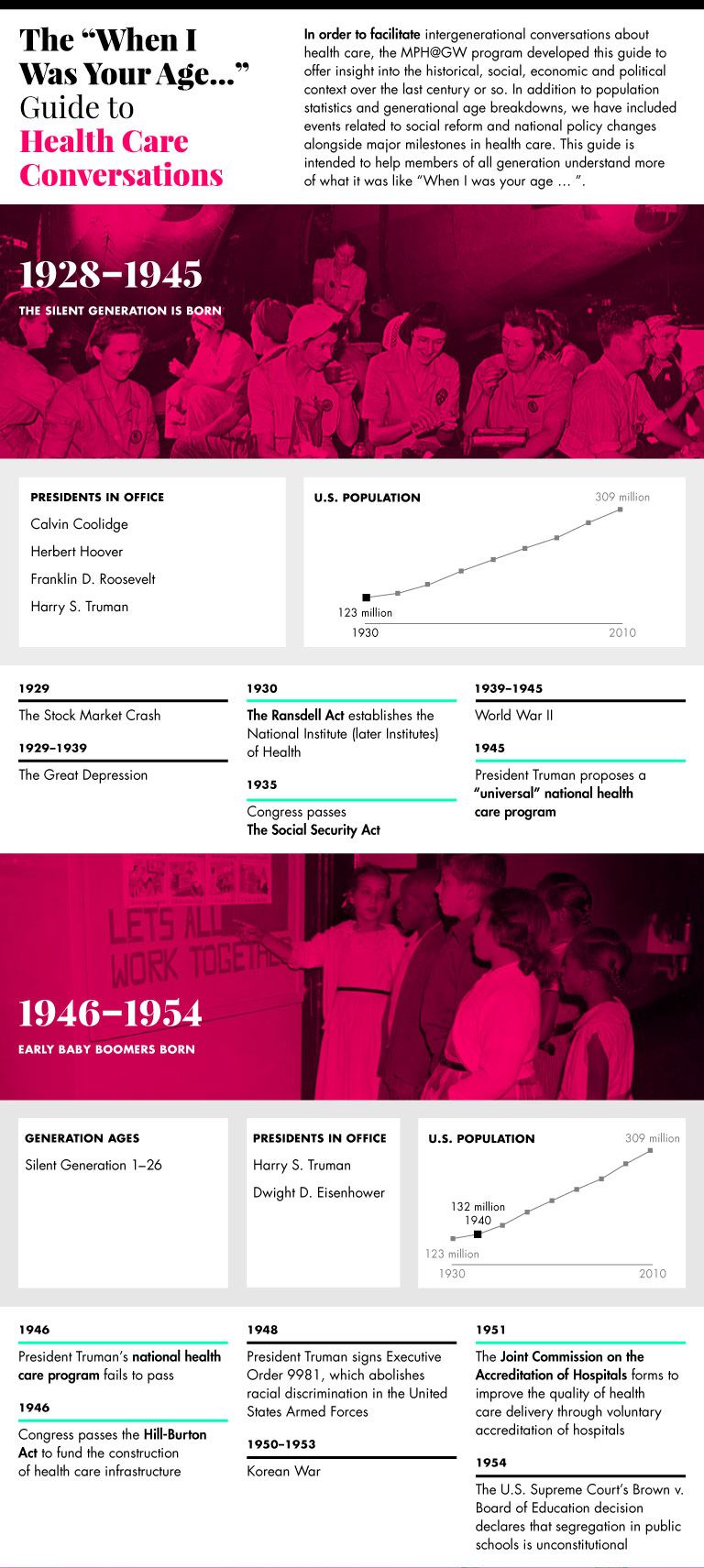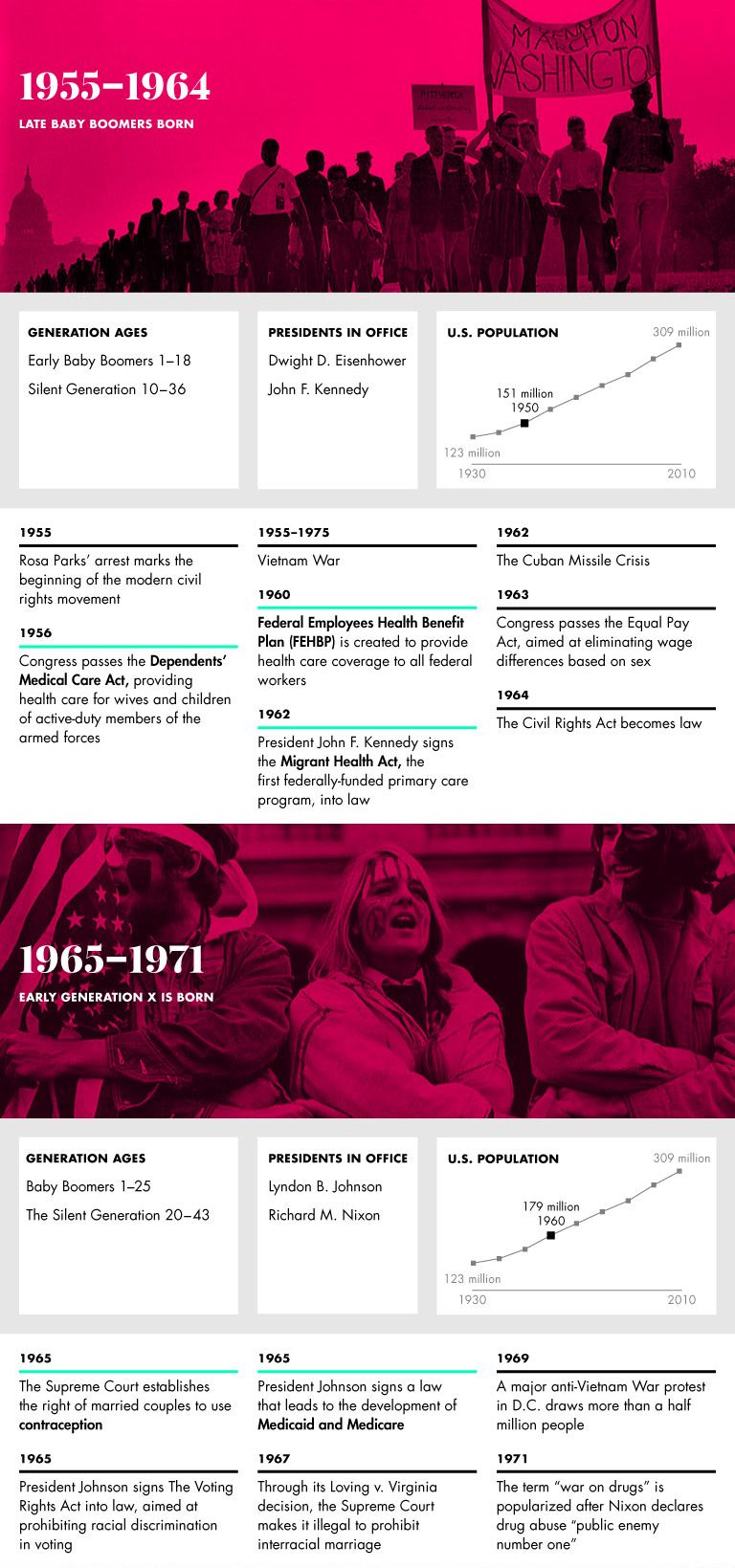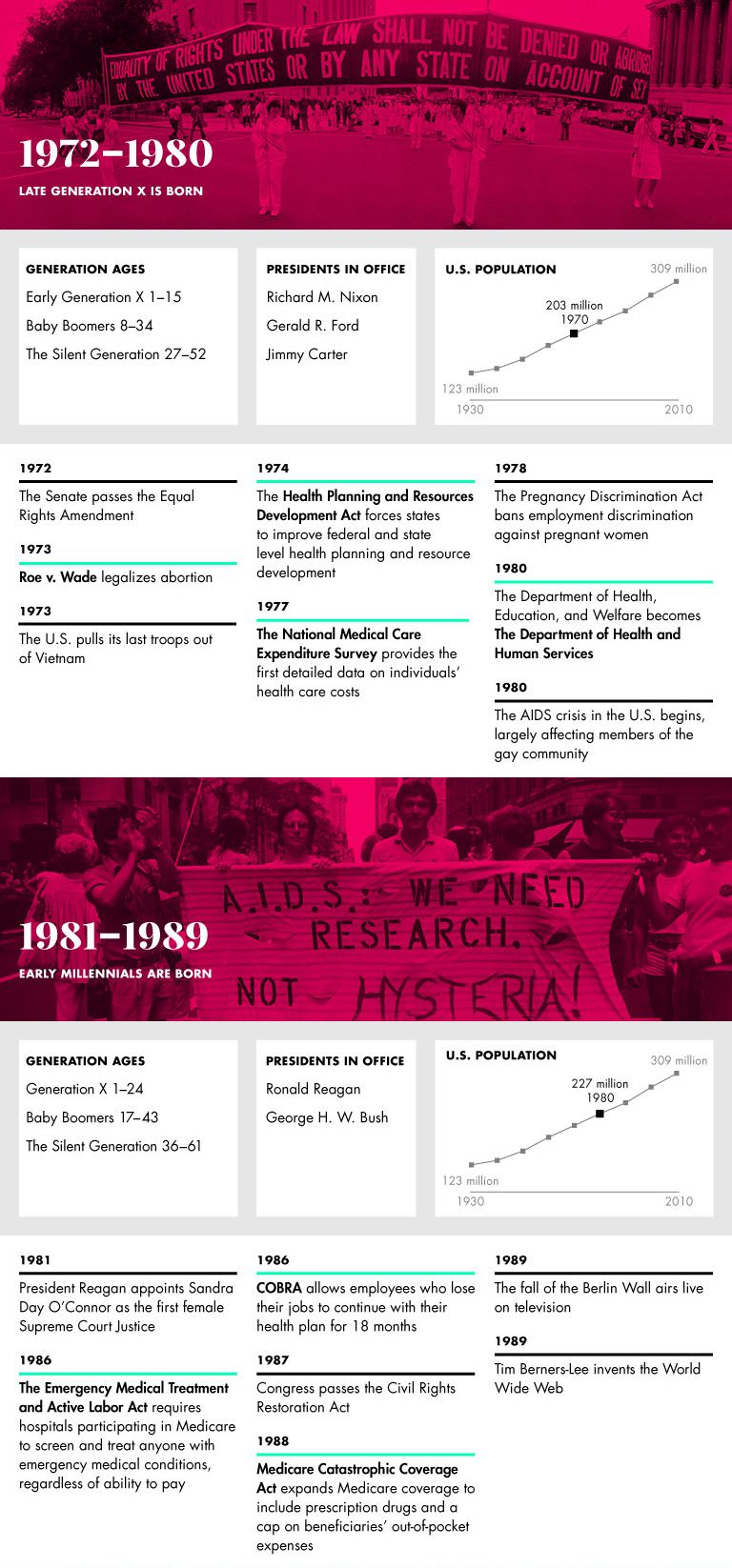- Center on Health Equity & Access
- Clinical
- Health Care Cost
- Health Care Delivery
- Insurance
- Policy
- Technology
- Value-Based Care
Strengthening Intergenerational Patient–Provider Relationships
As more millennials enter the healthcare workforce, health outcomes of the baby boomer generation increasingly will depend on the quality of communication with a generation that has grown up in a very different time.
First, the good news for baby boomers: They are living longer than people of previous generations. The bad news: They are less healthy. However, the overall health of older baby boomers has been trending higher. By the year 2029, the youngest boomers will reach retirement age, bringing the total of Americans age 65 or older to 71 million. Older adults, their caretakers, and healthcare professionals will need to work together to ensure that baby boomers’ health trends go in a positive direction.
Healthy aging requires healthy behavior changes at the individual level, but it also depends on the availability of sufficient healthcare coverage and accessibility of healthcare resources, including healthcare providers. So what will the healthcare system need to meet this growing demand, while also struggling with limited resources—including an estimated shortage of 90,000 physicians? Improved patient—provider communication would help. Better patient–provider relationships encourage healthier outcomes. Leaders of healthcare systems studied by Harvard Business Review “believe that by promoting relationship building on an individual patient level, favorable costs and outcomes will follow.”
Mutual trust is the foundation of these relationships. Providers must trust their patients are being honest about taking their medications, accurately reporting symptoms, and discussing lifestyle choices and behaviors that may contribute to their conditions. Patients must trust that their providers are capable and nonjudgmental, and that following their instructions will lead to better health. However, these relationships are not always easy to form during the 15 to 20 minutes of an average doctor visit.
As baby boomers age, more millennials will enter the health care workforce. Health outcomes of the baby boomer generation will depend heavily on the quality of communication with a generation that has grown up in a very different time. The United States has changed drastically since baby boomers were children. To help facilitate more effective and meaningful intergenerational discussions about health care, MPH@GW, the online Master of Public Health program offered by The Milken Institute School of Public Health at The George Washington University, developed The “When I Was Your Age…” Guide to Health Care Conversations.
Millennials and baby boomers have experienced different waves of social, economic, political and health care reform at different stages of their lives. As health outcomes become increasingly dependent on strong patient—provider relationships, it will be even more important to understand the generational context for people’s beliefs, practices and behaviors.
Click on images below to enlarge




